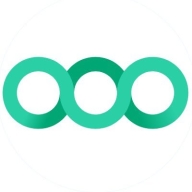

SonarQube Cloud and Semgrep compete in the static code analysis category. Data indicates Semgrep has the upper hand due to its flexibility and customization capabilities, although it comes at a higher cost.
Features: SonarQube Cloud provides comprehensive language support, seamless integration with DevOps pipelines, and efficient continuous code quality checks. Semgrep offers ease of writing and deploying custom rules, granular control over security, and customization for detailed inspections.
Ease of Deployment and Customer Service: SonarQube Cloud uses a SaaS deployment model for reduced complexity and quick scalability with responsive customer service. Semgrep provides flexible installation options, though it may require more initial setup. Both products offer strong customer support with SonarQube Cloud providing faster resolutions.
Pricing and ROI: SonarQube Cloud features competitive pricing with lower setup costs, leading to faster ROI due to lower initial expenses. Semgrep's higher setup expenses are justified by its advanced features, offering long-term benefits for users who prioritize customization and detailed analysis.
| Product | Market Share (%) |
|---|---|
| SonarQube Cloud (formerly SonarCloud) | 4.2% |
| Semgrep | 3.0% |
| Other | 92.8% |


| Company Size | Count |
|---|---|
| Small Business | 9 |
| Midsize Enterprise | 3 |
| Large Enterprise | 4 |
Semgrep is an advanced static analysis tool designed to identify vulnerabilities and enforce coding standards, catering primarily to professionals with a focus on enhancing code security and quality.
Engineered for software development environments, Semgrep delivers efficient security feedback with minimal setup. By offering a rich collection of rule sets, it allows customization and integration into CI/CD pipelines, supporting continuous code examination. Semgrep not only uncovers hidden flaws but also enforces best practices, making it a valuable asset for development teams seeking to build secure and reliable software.
What are the most important features of Semgrep?In industry applications, Semgrep is a popular choice for sectors such as finance and healthcare, where code integrity and security are paramount. Its integration capabilities allow for effective oversight of compliance and secure coding standards without disrupting existing workflows. This adaptability ensures it meets sector-specific requirements, making it a trusted tool in fields where data privacy and protection are critical.
SonarQube Cloud offers static code analysis and application security testing, seamlessly integrating into CI/CD pipelines. It's a vital tool for identifying vulnerabilities and ensuring code quality before deployment.
SonarQube Cloud is widely used for its ability to integrate with tools like GitHub, Jenkins, and Bitbucket, providing critical feedback at the pull request level. It's designed to help organizations maintain clean code by acting as a quality gate. This service supports development methodologies including sprints and Kanban for ongoing vulnerability management. While appreciated for its dashboard and integration capabilities, some users find initial setup challenging and note the need for enhanced documentation. The recent addition of mono reports and microservices support offers deeper insights into security and code quality, though container testing limitations and false positives are noted drawbacks. Manual intervention is sometimes required to address detailed reporting, with external tools being necessary for comprehensive analysis. Notifications for larger teams during serious issues and streamlined integration of new features are also areas of improvement.
What are the key features of SonarQube Cloud?In specific industries, SonarQube Cloud finds application in finance and healthcare where code integrity and security are paramount. It allows teams to identify critical vulnerabilities early and ensures that software development aligns with industry regulations and standards. By continuously analyzing code, it aids organizations in deploying secure and reliable applications, fostering trust and compliance.
We monitor all Static Application Security Testing (SAST) reviews to prevent fraudulent reviews and keep review quality high. We do not post reviews by company employees or direct competitors. We validate each review for authenticity via cross-reference with LinkedIn, and personal follow-up with the reviewer when necessary.